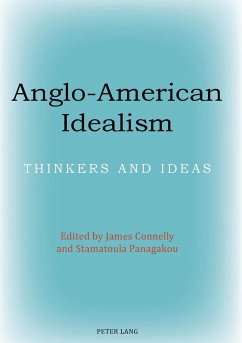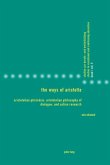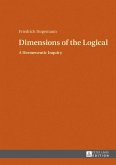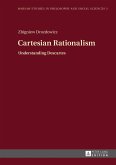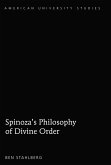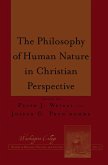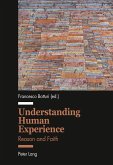This volume is devoted to a critical discussion and re-appraisal of the work of Anglo-American Idealists of the nineteenth and twentieth centuries. Idealism was the dominant philosophy in Britain and the entire English-speaking world during the last decades of the nineteenth century and the beginning of the twentieth. The British Idealists made important contributions to logic, metaphysics, aesthetics, ethics, social and political philosophy, philosophy of history, philosophy of religion and philosophy of mind. Their legacy awaits further exploration and reassessment, and this book is a contribution to this task.
The essays in this collection display many aspects of contemporary concern with idealistic philosophy: they range from treatments of logic to consideration of the Absolute, personal idealism, the philosophy of religion, philosophy of art, philosophy of action, and moral and political philosophy.
During the first decade of the twenty-first century, the work of the Anglo-American Idealists has once again been widely discussed and re-considered, and new pathways of research and investigation have been opened.
The essays in this collection display many aspects of contemporary concern with idealistic philosophy: they range from treatments of logic to consideration of the Absolute, personal idealism, the philosophy of religion, philosophy of art, philosophy of action, and moral and political philosophy.
During the first decade of the twenty-first century, the work of the Anglo-American Idealists has once again been widely discussed and re-considered, and new pathways of research and investigation have been opened.
«The publication of 'Anglo-American Idealism; Thinkers and Ideas' is timely. Considering the increasing time allocated to the philosophy and history of British Idealism in university curricula (...), the volume will interest both advanced undergraduates and graduates. An interested reader will doubtless find more than a single chapter instructive. Not only will students of Anglo-American Idealism find the volume essential reading, but also political theorists and intellectual historians will be able to consult (...) the engaging discussions of the volume.» (Antis Loizides, Political Studies Review)
«This edited volume provides an insightful and informative perspective on all aspects of contemporary concern with idealist philosophy. [...] The volume is a welcome addition to the expanding literature on idealism and is particularly helpful in displaying its variety and inter-connectedness, along with its impact and relevance to today.» (Richard Murphy, Philosophy in Review XXXII, 04/2012)
«'Anglo-American Idealism - Thinkers and Ideas' is an excellent introduction to contemporary idealism, and has an ample scope for exegesis in the classroom. The kind of careful work exhibited here will open up latent currents of thought and develop intuition at the historical as well as the personal level, not only for students of idealism but also for those (...) interested in the fullest extensions of the Platonic paradigm.» (Alastair Beattie, Interchange 04/2014)
«This edited volume provides an insightful and informative perspective on all aspects of contemporary concern with idealist philosophy. [...] The volume is a welcome addition to the expanding literature on idealism and is particularly helpful in displaying its variety and inter-connectedness, along with its impact and relevance to today.» (Richard Murphy, Philosophy in Review XXXII, 04/2012)
«'Anglo-American Idealism - Thinkers and Ideas' is an excellent introduction to contemporary idealism, and has an ample scope for exegesis in the classroom. The kind of careful work exhibited here will open up latent currents of thought and develop intuition at the historical as well as the personal level, not only for students of idealism but also for those (...) interested in the fullest extensions of the Platonic paradigm.» (Alastair Beattie, Interchange 04/2014)

